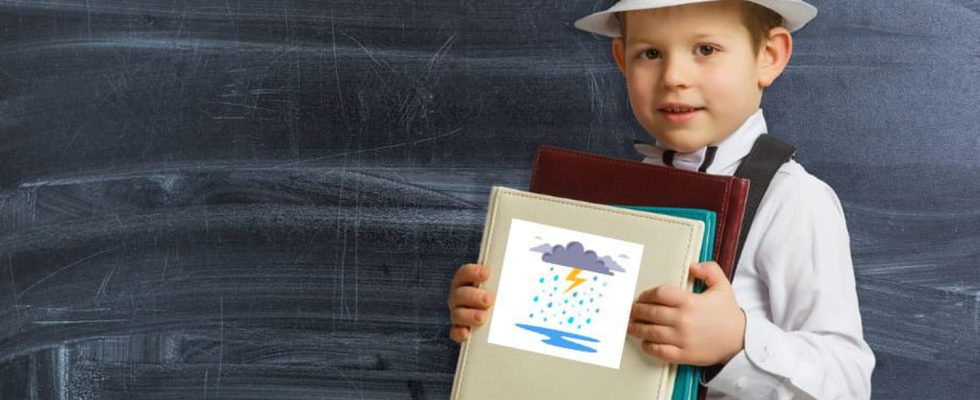They are called impersonal verbs, that is to say they are only used in the third person singular or plural.
You thought you knew everything about conjugation tenses? If most of the verbs in the 1st, 2nd or 3rd group are conjugated in all tenses, others simply do not have a simple past tense or an imperfect subjunctive. They are called defective verbs. This is the case for many verbs, such as abstract, extract, milk, dissolve, close. Other verbs are only used in the infinitive or the past participle, but they remain rare… Yes, the French language has its exceptions! One of them concerns verbs that are only used in the third person singular or plural and which we call, this time, impersonal verbs. Most of the time, these verbs are related to the weather. Obviously, when we read these words, we say to ourselves that it is impossible to do otherwise, it seems obvious.
Indeed, verbs related to weather problems are not used with all personal pronouns (I, you, he/she, we, you, they/them). Only the third person singular, sometimes the plural, is appropriate. It snows, it hails, it rains, it winds, it drizzles. But we will also and only say “the weather is nice”, “the weather is clear”, “there is fog”… Here is the list of defective verbs which refer to the weather: blur, drizzle, mist, mist , drizzle, hail, snow, snow, rain, rain, rain, rain, rain, rain, thunder, wind, ice. Other verbs can be listed as impersonal verbs such as the verb barder, apparoir, chaloir, advenir (it happens), dracher, s’agir de (it’s about), or even needoir (it is necessary).
Finally, certain impersonal verbs can be conjugated in the third person singular and plural (il s’ensuite/ils s’ensuite, il echit/ils echient, il saillant/ils sallant, il siéent, or even, il pleunt, for example example: “criticism rained in all directions”). As you will have understood, French conjugation has its particularities which should be known and very often revised, whatever our age.
